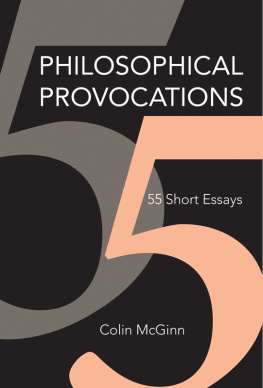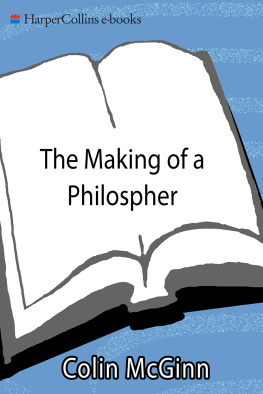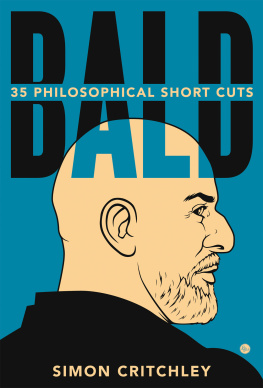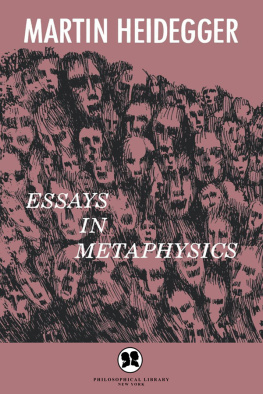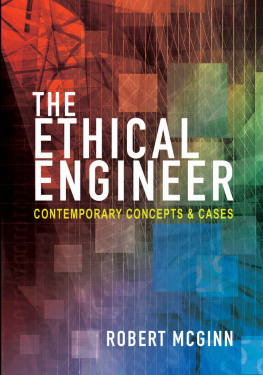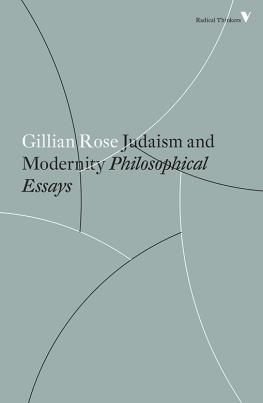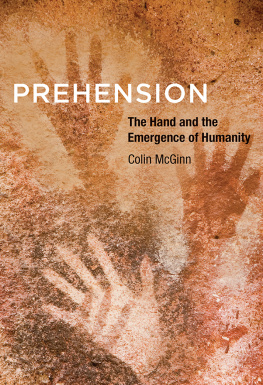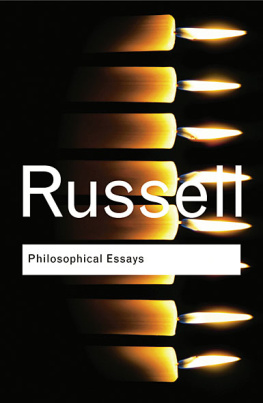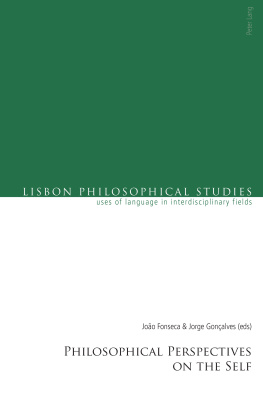
Philosophical Provocations
55 Short Essays
Colin McGinn
The MIT Press
Cambridge, Massachusetts
London, England
2017 Massachusetts Institute of Technology
All rights reserved. No part of this book may be reproduced in any form by any electronic or mechanical means (including photocopying, recording, or information storage and retrieval) without permission in writing from the publisher.
This book was set in ITC Stone Sans Std and ITC Stone Serif Std by Toppan Best-set Premedia Limited. Printed and bound in the United States of America.
Library of Congress Cataloging-in-Publication Data
Names: McGinn, Colin, 1950- author.
Title: Philosophical provocations : 55 short essays / Colin McGinn.
Description: Cambridge, MA : MIT Press, 2017. | Includes bibliographical references and index.
Identifiers: LCCN 2016046174 | ISBN 9780262036191 (hardcover : alk. paper)
eISBN 9780262340083
Subjects: LCSH: Philosophy.
Classification: LCC BD41 .M34 2017 | DDC 192--dc23 LC record available at https://lccn.loc.gov/2016046174
ePub Version 1.0
Preface
The essays collected here follow a particular pattern and style. They aim to be pithy, with no padding or extraneous citation. They each address a specific philosophical issue and try to make progress with it as efficiently as possible. There is little discussion of particular authors or the literature; my aim is to get down to the issues immediately and state a position. I avoid excessive qualification or self-protection, leaving it to the reader to fill in gaps. Thus: short, sharp, and breezy. The style is intended to contrast with the way academic philosophy tends to be written these days: long, leaden, citation-heavy, and painful to read. This means that the book can be read by someone not expert in the fields covered, though I would not deny that some of the essays are quite demandingbut not I think unnecessarily so. There is room in academic writing for the style I avoid, but there is something to be gained by the direct and unencumbered style I adopt here (I have written my fair share of the other kind of stuff).
A great many topics are covered in the book, and I make no attempt to link them. Each occurred to me independently of the others, though there are thematic continuities. They often challenge orthodoxy in ways that might seem shocking and put forward views that may be condemned as eccentric. There is nothing safe about these essaysthough I do help myself to a dose of common sense when needed. I am self-consciously trying to find new ways to think about old problems. Maybe not all the suggestions will stand the test of further reflection, but I hope they stir people to think in fresh waysor at least to feel provoked at my audacity.
My ideal over the period of writing these essays (2014 to 2016) was to resolve a serious philosophical problem in no more than a page. Needless to say, this ideal was just thatnot a realistic prospect. Still, it was a useful guiding principle, because it forced me to extremes of economy in formulation and argument. I ruthlessly excluded all preamble and qualification, knowing that sophisticated readers will pounce on certain passages; I tried to get right to the point and state my view with maximum clarity. Admittedly, I did occasionally employ arguments, in the standard style, but I tried to keep them short and sweet. No doubt Ive sometimes lapsed into prolixity and professionalism, old habits being what they are, but I regard that as a fault, not a virtue. If an essay does not raise professional eyebrows at some point, I count it a failure.
Colin McGinn
Note
In fact the essays published here constitute a selection from a larger number of essays written over the same period (one hundred and thirty in all). I hope to publish the remaining essays in a later volume.
I Mind
The Mystery of the Unconscious
Introduction
For some time now consciousness has been at the center of discussions of the mindbody problem. We might say that today the mindbody problem is the consciousnessbrain problem. But it was not always so. Thomas Nagel felt it necessary to begin his classic 1974 paper What Is It Like to Be a Bat? with these words: Consciousness is what makes the mindbody problem really intractable. Perhaps that is why current discussions of the problem give it little attention or get it obviously wrong. I introduced my 1989 paper Can We Solve the MindBody Problem? as follows: The specific problem I want to discuss concerns consciousness, the hard nut of the mindbody problem. How is it possible for conscious states to depend upon brain states? How can Technicolor phenomenology arise from soggy grey matter? David Chalmers has spoken of consciousness as the hard problem, distinguishing it from (relatively) easy problems of the mind, and finding in it a uniquely difficult phenomenon to bring within a materialist perspective. And many others have felt that the problem of consciousness is particularly and distinctively deep or profoundas if without it the mind would be far less intractable, perhaps not intractable at all. Consciousness is now thought to be the great enigma of the mind.
I think we have all been wrong. I say this not because I believe that consciousness is tractable after all; it is rather that I think it is not uniquely intractable. To be more specific, I think that much the same problems that afflict consciousness also afflict unconsciousness: unconscious mental states are as problematic as conscious mental states, and for essentially the same reasons. The emphasis on consciousness is therefore misplaced, even though the authors cited have been right to discern a deep problem about consciousness. Consciousness is indeed a mystery, but so is the unconscious (hence my title for this essay).
The plan of the essay is as follows. First I will explain how the standard arguments against materialism for conscious states carry over to unconscious states. Next I will offer a diagnosis of why it is harder to see this in the case of the unconscious than it is for the conscious. Then I will describe the intimate relations between the conscious mind and the unconscious mind, so that we can see that it is extremely unlikely that the former should be deeply intractable while the latter is relatively plain sailing. It is the mind in its entirety that poses an intractably hard problem for materialism, not just the conscious part of it.
Antimaterialist Arguments
It is not difficult to see how the standard arguments transpose to the unconscious, once the question has been formulated. I will therefore go over this ground quickly, assuming that the reader is familiar with the arguments in question. I am going to use what I hope is an uncontroversial example of an unconscious mental statenot the Freudian or Jungian unconscious or anything exotic like that. I came to the position to be outlined here in the course of defending innate ideas in the Cartesian sense: these ideas had to be unconscious, given that babies are not born consciously thinking about mathematics or sensible qualities or anything else Descartes took to be innate (rightly, in my view). But I dont want to enter this controversial territory now; instead I shall discuss a straightforward case of experiential memory. Suppose that yesterday I saw a red bird in my garden and noted its fine plumage. Then I went back to work and didnt think any more about it. Today I (consciously) remember seeing the bird and wonder if I will see it again: I recall seeing its brilliant red plumage, just as I experienced it yesterday. I have a visual memory of my perceptual experience. Between these two times, evidently, I stored the experience of the red bird in my memory, wherein it resided unconsciously. That is, I was not conscious of the memory between the two times; like most of my memories it existed in an unconscious form, though it was not difficult to bring it to consciousness. The unconscious memory was sandwiched between an act of conscious perception and an act of conscious remembering: but it was not itself conscious. It existed in the unconscious part of my mind. For brevity, call this memory the memory of red.
Next page
